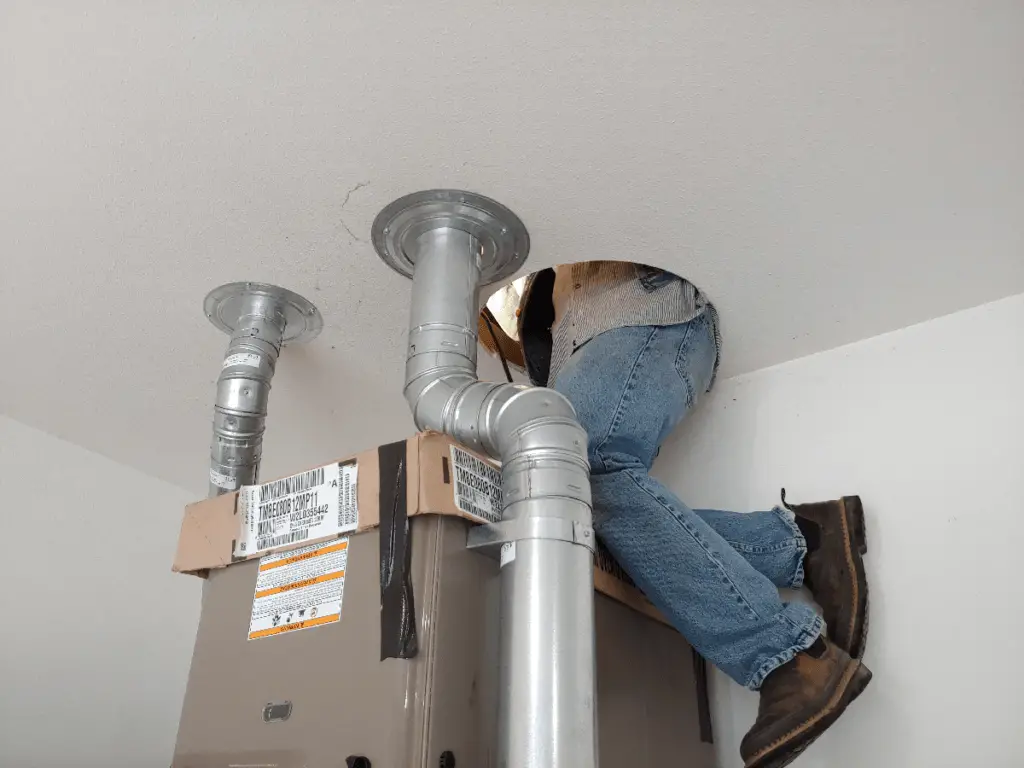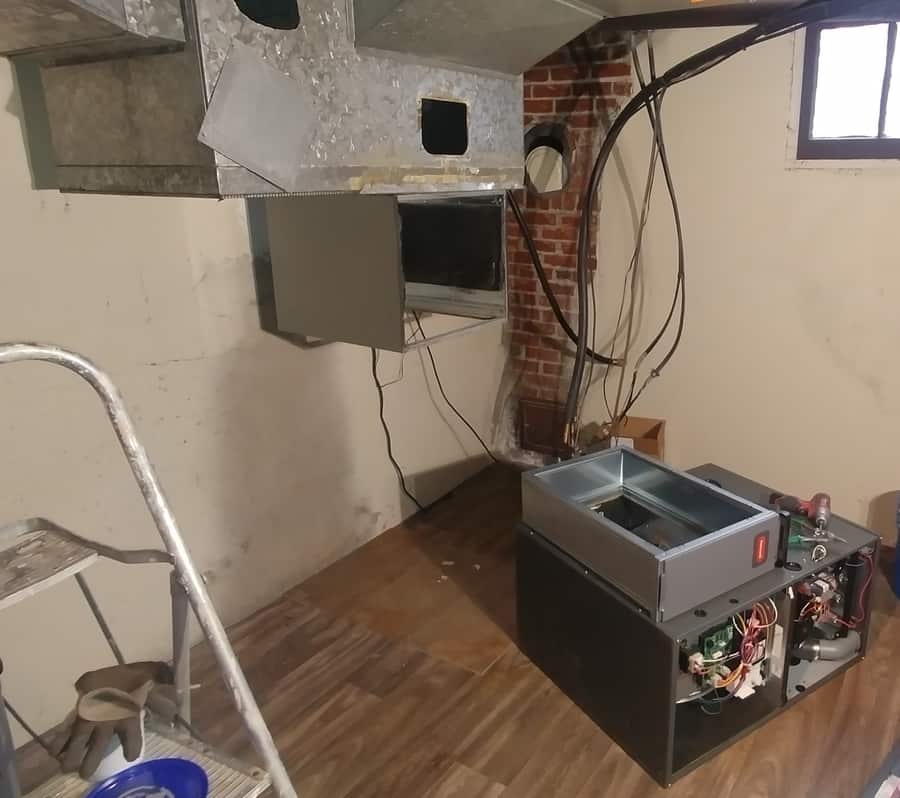Most jurisdictions the answer will be yes, you can install your own furnace in your own residence that you live in, but you may be required to get permits. A lot of home owners are reluctant to get permits to do remodels, thinking that it will add to their property taxes.
That’s an interesting reason, but I doubt that new furnace will add much in additional taxes, nor will it likely add an appreciable amount to your property value. Whatever you do, don’t rely on the answers you read on the internet.
You will get the correct answer from your own county or city building department. Your local code enforcement authority has the correct answer for where you live, because the answer varies across the nation. I’m currently working (until October 3rd, 2023) in an area that only requires permits for roofing and plumbing. So you never know until you ask.

A new furnace may add to the salability of your home verses the old clunker that you want to replace. That’s a good question to ask your local real estate expert. That answer has variable answers on the internet also. It has to vary from location to location. Some say it could add 5 to 10 percent to your homes value and others say none.
I personally think it greatly increases the buyers incentive to buy your home. If you’re like me and your house sells right away you think you should have got 5 to 10 percent more anyway. Bathrooms and kitchens seem to pull more weight with house prices.
If permits are required, get one! When it comes time to sell your home you’ll be glad you did. Some disclosures on contracts ask if you’ve done any work without permits. It’s also the safe thing to do.
Will My Building Department Let Homeowners Buy Permits To Install Their Own Furnaces?
My local building department will allow me to do anything in my own home. Some things don’t even require a permit such as a deck under so many square feet. A furnace would be a totally different project and would most likely end up requiring a permit to install. Should you end up getting a permit, that’s totally up to you.
But what happens if you get caught installing a furnace without a permit? Most of my experience with that is with about 8 to 10 different counties. From what I know the building departments might charge you a double inspection fee, but most of the time would tell you to stop all work and go buy a permit.
If you don’t purchase a permit and you get caught, you do run the risk of the inspectors being more difficult to work with when it comes to things they would normally just ignore. Some inspectors are a little over zealous and like to sort of abuse their authority but overall I’ve found them to be very helpful to home owners. Even to the point of teaching or coaching the DIY homeowner.
If you have your doubts about your ability to install a furnace, you might try one of these books on Amazon’s site that gives a lot of very helpful detail. Click the image and browse through the section. I’ve not purchased any to know what one would be best.

Most HVAC companies will discourage you from attempting to install your own equipment claiming that it’s very difficult or you could burn down your house. There might be some truth to that. Great care needs to be taken when working with tools and equipment that can be hazardous.
Natural gas or propane can be dangerous also but if you get a permit their are certain steps you have to follow that make it pretty safe. For instance, you won’t be able to turn on the gas for a new service unless you get a pressure test and the inspector approves the gas pipe job.
This article is by no means an endorsement to proceed, just simply information that may inform you that it’s possible for homeowners to do they’re own work in they’re own home. I believe that does not include a rental that you own. Another thing to check out with local authorities. There’s always something to consider.

